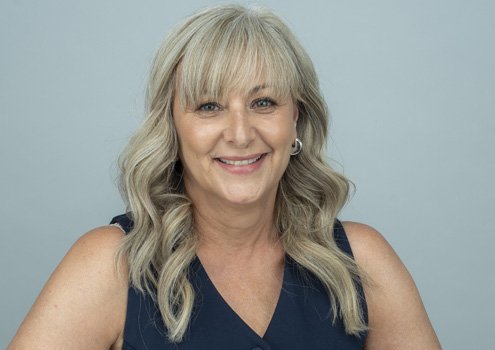Reading time: About 2 minutes
Maryann Kerr likes to live by the Annie Dillard quote, “How you spend your days is how you spend your life”….
Maryann Kerr is a leadership consultant who has dedicated her career to the social impact, nonprofit, and charitable space. She is an author and advocate for social impact sector workers. Her book Tarnished was published by Civil Sector Press in 2022. Maryann is a life-partner, mother, friend, sister and advocate for those living with ADHD. Justice, equity and inclusion are her core values.
I was excited to talk to Maryann about how she approaches writing.
Q. Roughly how much time do you spend writing every day?
I don’t write every day – probably four days a week – and on those days, for about two to three hours. It comes in various formats from journalling to blog posts to letters to the editor.
Q. What’s a simple activity or habit that makes you a better writer?
It is always the first thing I do in the morning. Often I’m still in my PJs nursing coffee. If I’m on a streak — my coffee usually goes cold a few times before I finish a single cup. I like to start my day with a data dump from my brain to the page. It doesn’t always result in great copy, but it is essential for my mental wellbeing. As a result, I have many pieces of incomplete work to which I may or may not return. I think of it as the equivalent to my mother-in-law’s sewing room, where she had dozens of partially completed crafts and projects.
Q. What interferes with your writing?
Everything interferes with my writing. My daily job as a consultant, family commitments, health concerns, and feelings of being an imposter. I’ve published one book and countless articles, primarily in industry-related magazines and blogs, but still don’t think of myself as a writer.
Q. How do you persuade yourself to sit down to write on days when you really, really DON’T feel like doing it?
I don’t. If I don’t feel up to it, I don’t do it. That said, most days it doesn’t feel like a choice, more of a compulsion. However, sometimes my voice feels inauthentic. On those occasions, I write but don’t publish or share what I’ve written. It goes into my idea folder for a revisit later. Often, those pieces end up in the trash.
Q. Is there a particular motto or saying that you’ve found helpful for writing?
The Annie Dillard quote, “How you spend your days is how you spend your life” resonates for me. If I want to consider myself a writer, then I need to write. If I spend my days on the couch, I’m a couch potato. If I spend my days complaining, I’m a whiner. If I spend my days living with gratitude, I am thankful. How I spend my days is how I spend my life. So simple.
Q. Which stage of the writing process do you enjoy the most: researching, writing or editing/rewriting and why?
I like the rewriting process. The initial writing is a little like throwing up all over the page. It just pours out of my brain and is most often not well written. Taking the time to consider a better choice of words to communicate with greater clarity is rewarding.
Q. What’s one of the best books you’ve read (either fiction or non) in the last five years?
I really enjoyed Susan Cain’s book Bittersweet. As a slightly melancholy introvert, I found her book to be relatable. It spoke to me. I felt less peculiar than usual after I read it.
Q. What book are you reading right now?
I’m reading Everything I Have Is Yours by Eleanor Henderson. It is our book club pick. The word I’d use to describe it so far: disturbing.
Q. What do you think is the biggest misperception that new writers have about the act of writing?
I think of myself as a new writer. I’ve been committed to the practice of writing for only six years. The biggest misperception I’ve overcome is that you are only a writer if you’ve been published or if your writing is shared publicly. Writing, for the sake of writing, is also writing.


